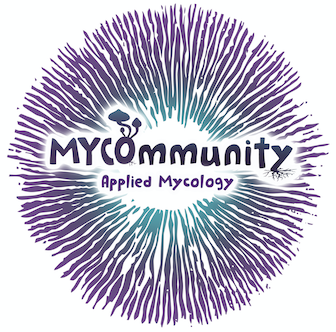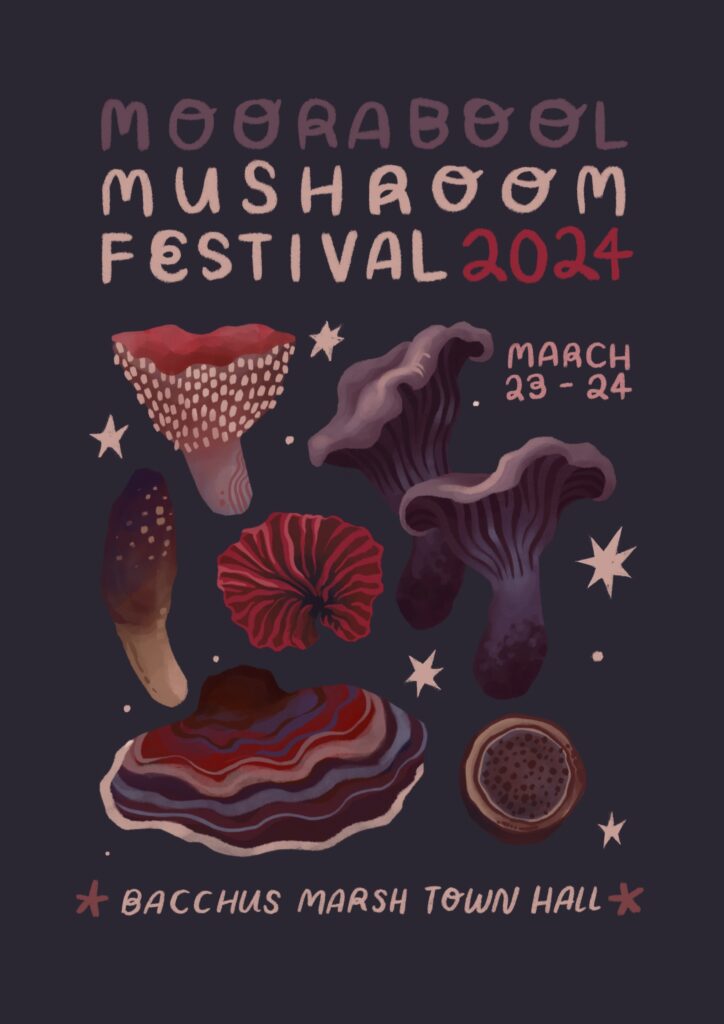
Moorabool Mushroom Festival
Bacchus Marsh, Victoria, March 23-24, 2024
TICKETS AVAILABLE:
Purchase here: http://thq.fyi/se/a49f52a61737
Join us for a celebration of all things fungi in Bacchus Marsh in March 2024, for the annual Moorabool Mushroom Festival!
The event will be held at the Bacchus Marsh Town Hall, which is 15 minutes walk from the Bacchus Marsh train station and near ample parking.
This 2 day festival will be looking at all aspects of fungi including:
- ecology
- citizen-science
- cultivation
- foraging
- food
- medicine
- mycoremediation
- mycomaterials
As part of this we will have talks, workshops, art, a social event and a market. There will be food for sale (including vegan options).
MYCOmmunity is a not-for-profit organisation. All proceeds from the festival will go to cover costs, to next year's festival or to local citizen science projects such as monitoring fungi in Wombat Forest.
Festival Schedule
Schedule may be subject to changes. See below for speaker details.


Speakers
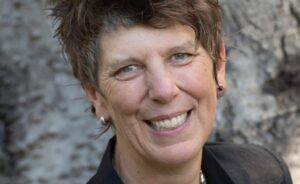
ALISON POULIOT is an ecologist with a passion for fungi. Her journeys in search of fungi span northern and southern hemispheres, ensuring two autumns and a double dose of fungi each year. As scientist and photographer, author and someone who roams the forest daily, Alison delves deep into the realm of fungi through multiple lenses. She has presented over 700 seminars, workshops and forays across a dozen countries. Alison is actively involved in fungal conservation, research and teaching, and is author of The Allure of Fungi, Underground Lovers (due March 2023) and co-author of Wild Mushrooming. For more information www.alisonpouliot.
Russula Roulette
Every mushroomer knows the danger of not being able to differentiate edible mushrooms from toxic lookalike species. In Switzerland, the Pilzkontrolleure, or mushroom inspectors have been saving lives for over a century by plucking poisonous mushrooms from people’s baskets and sending them home with the edible fare. Despite being tinier than Tassie, Switzerland has 409 mushroom inspection offices staffed by 1500 inspectors.
Furthermore, a publicly accessible online atlas of fungus distribution (including 937 endangered species) helps foragers find their target mushrooms. The Swiss are well versed in fungi and foraging and this has also stimulated mycological research and resources.
Yet in Australia, all biodiversity – including fungi – is protected at all three levels of government and hence foraging is illegal on public land.
Over the last couple of decades Alison has divided her time between hemispheres working both with fungi and their followers.
In this talk Alison will explore the tensions between foraging and conservation and the different approaches of various nations to both protect species and keep hunters happy.

Dr Sapphire McMullan-Fisher is an ecologist who has special interest in the conservation of biodiversity, particularly the macrofungi and mosses. She did her doctorate at the University of Tasmania on ‘Surrogates for cryptogam conservation – associations between mosses, macrofungi, vascular plants and environmental variables.’ In 2018 with Roz Hard and many Australasian Mycologists and amateurs in ‘love’ with fungi, started the project to develop a land management book for Australian Fungi with the working title Fungi4Land. Sapphire has been involved with many Australian fungi groups including MYCOmmunity, QMS and Fungimap. She is a representative on International Union for Conservation of Nature (IUCN) Species Survival Commission (SSC) Specialist Groups: Species Monitoring and Mushroom, Bracket and Puffball. She is also active with Australian scientific groups like the Education Subcommittee of the Australasian Mycological Society, Australian Bryophyte Workshops and community groups including many Field Naturalist Clubs and Landcare groups and Australian Plants Societies. To read more about her research profile in Research Gate and LinkedIn.
Sapphire will be launching her new book "Mushroom Magic: an illustrated guide to fascinating fungi" at the festival.
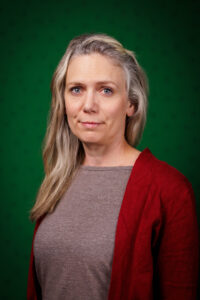
Justine Karst is an associate professor in the Department of Renewable Resources at the University of Alberta, Canada. She has been studying the mycorrhizal ecology of forests for 20 years. Recently she and her colleagues challenged claims in the popular media about common mycorrhizal networks in forests and concluded that they are disconnected from evidence. In this talk, she will explain how many popular ideas of the 'wood-wide web' are ahead of the science.
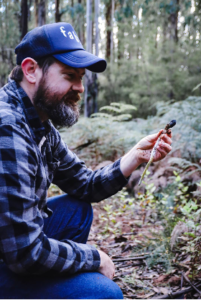
Jim Fuller is the Co-founder and Chief Science Officer of Fable Food Co. He is a fine dining chef, chemical engineer and mycologist (mushroom scientist).
Combining his unique knowledge of mushrooms, chemical engineering, nutritional science with his expertise as a chef and a mushroom farmer, Jim heads up research and development at Fable, where he has forged new ground in the meat alternative market with Fable’s delicious meaty food made from mushrooms.
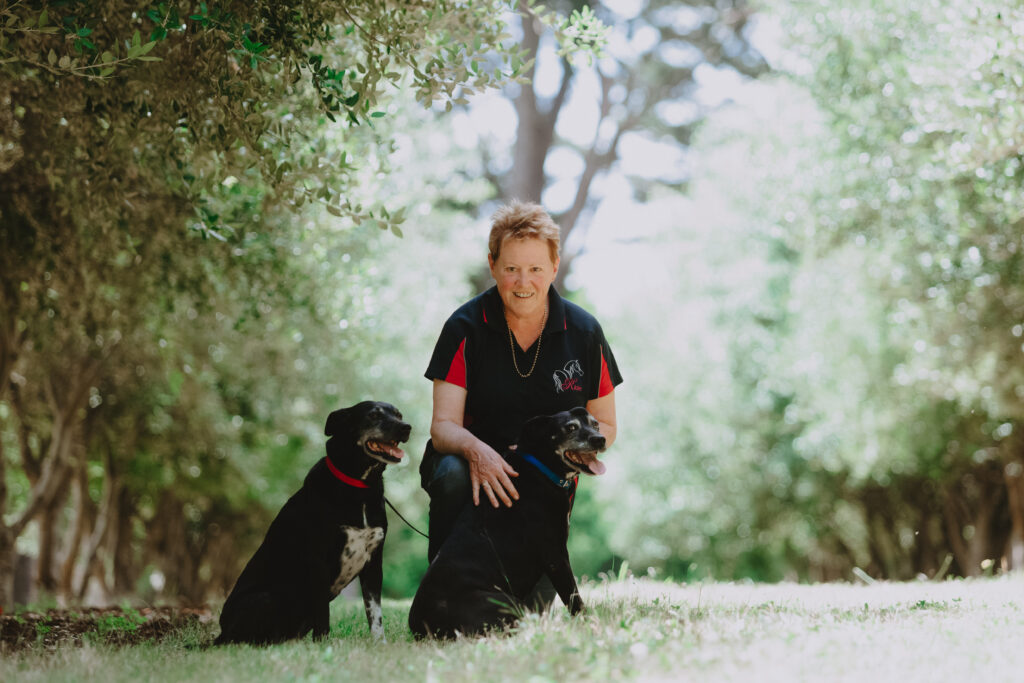
Cultivating Winter Truffles
Unravel the Mystery of Earth’s Black Gold!
by Sue Daly
The first black truffle harvested in Australia was in 1999. Some 7 years later Sue commenced planning her one hectare, 360 tree truffle plantation which was established in 2007. Anticipating the potential for an initial harvest after 4 years, Sue acquired Abbie and Holly as young puppies and commenced their training in truffle scent detection in 2010. The initial fruits of her labours were realised in the winter of 2011, with Abbie locating her first ‘black gold’ at 10 months of age.
As the seasons have come and gone Sue has established a dedicated truffle facility for hosting events, washing, grading, packaging and selling truffles. Each year as the days grow shorter, the nights grow longer and the early morning frosts kick in, there is a growing sense of anticipation about what the coming winter truffle season will bring.
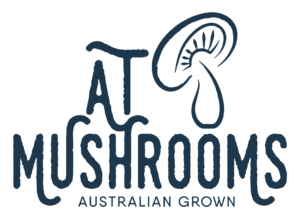
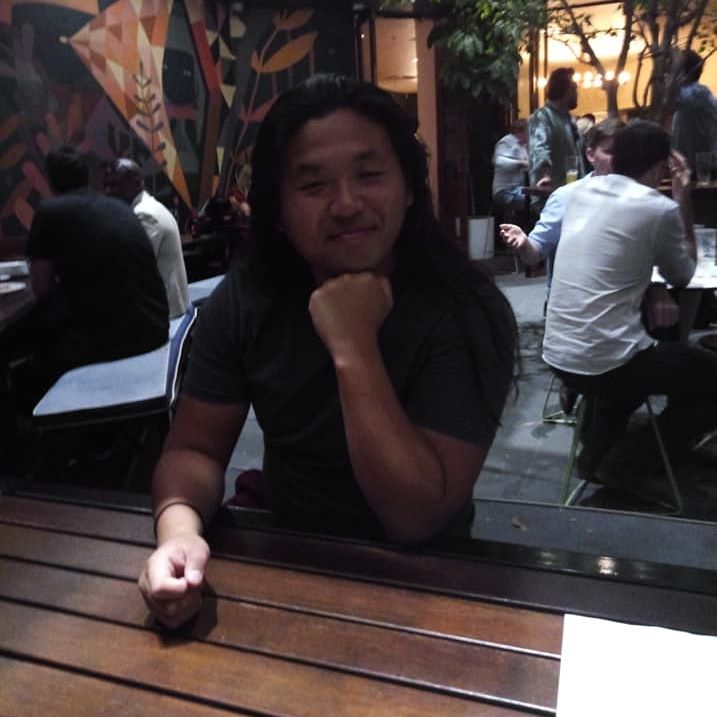
Melvin Xu Researcher at University of Melbourne on Entomopathogenic fungi, Vice President & volunteer at MYCOmmunity and Coordinator of the Fungi Group of Field Naturalist Club Victoria.
The relationship between Orchid and their fungal partners are crucial to their survival, Orchids seeds are not able to germinate due to their lack of available nutrients, this is where fungi play a crucial role providing accessible nutrients for the Orchid seeds when the environment is suitable.
Working in Council, Landcare, and volunteer groups, begun his home propagation from his own Australian Native Terrestrial Orchids. With his own stock of fungi and seeds hope to develop new protocols to include fungi into local nursery and future conservation of native Orchids.
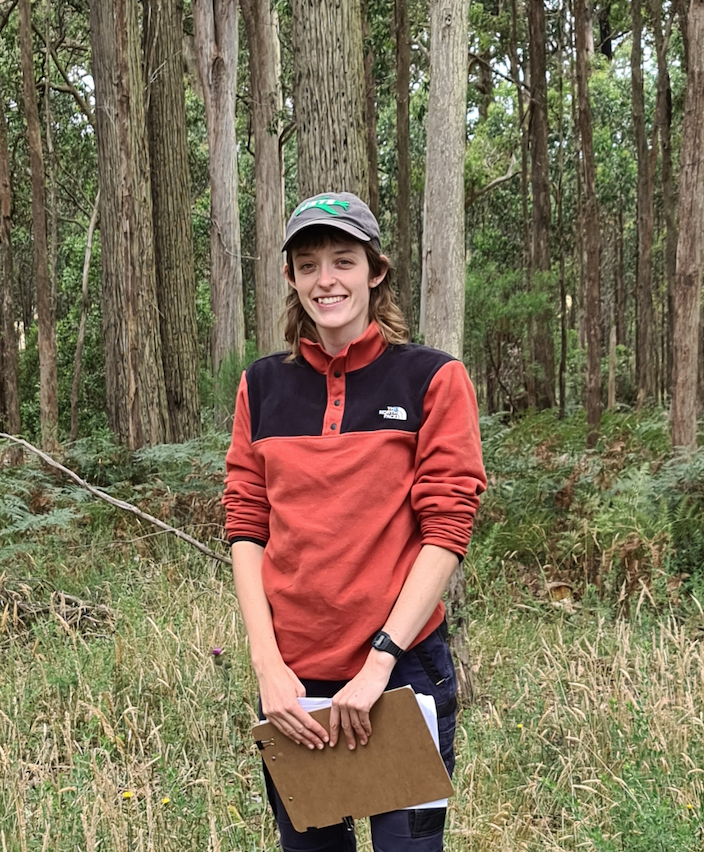
Emily McIntyre is a graduate of a Masters of Ecosystem Management and Conservation, where her thesis explored the effect of biotic and environmental variables on soil fungi across an elevational gradient. She is currently undertaking a PhD at the University of Melbourne, where she is studying the diversity and ecology of hypogeous fungi in south-eastern Australia. Her research explores the distribution and diversity of these fungi and their mutualistic relationship with the endangered Long-Footed Potoroo. She is also currently undertaking research through MYCOmmunity's Wild Fungi DNA Project to examine the effect of storm damage on soil fungi within Wombat Forest.
Emily is most interested in learning about the interactions that fungi have with plants, animals, and abiotic factors, to better understand how ecosystems function.
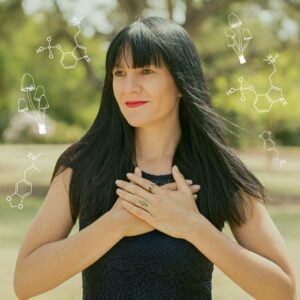
Dr Lani Roy - Psychologist, Social Worker, Advocate
Community Outreach & Stakeholder Liaison Officer Dr Alana (Lani) Roy is a Melbourne-based psychologist, social worker, and therapist with extensive experience in mental health, suicide prevention, trauma, sexual abuse, family violence, and the disability sector.
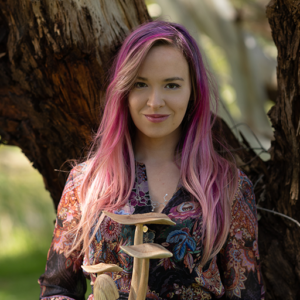
Melissa Warner
B.Science (Neuroscience), Grad Dip (Psych)
Melissa Warner is an advocate for innovative solutions for mental health and is on a mission to cultivate a holistic understanding of wellbeing. She is the Secretary of Psychedelic Research in Science and Medicine (PRISM), a meditation teacher at Signs of Life Psychology, co-founder of The Australian Psychedelic Society, and is a co-director of the Cyberdelic Society. Melissa seeks to elucidate the potential of psychedelic, meditative, and flow states to enhance human health and flourishing. As a scientist, therapist, futurist and artist, Melissa seeks to elucidate the potential of contemplative practices, altered states, and play to enhance human health and flourishing.

Charlie Clark: Hello! My name is Charlie. I’m a face painter and fungi lover based in Naarm/Melbourne. Available for all and any types of events! Feel free to contact me via mobile for more information or quote for your event.
Mobile: 0417 296 113.
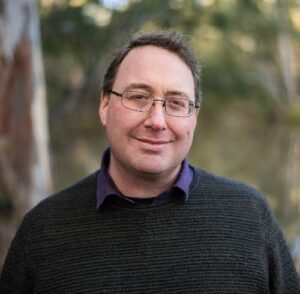
Caine Barlow is a Fungi Educator and Mycologist based in Melbourne, Australia. He gives regular talks on mycology, fungi conservation, and teaches gourmet mushroom cultivation. He works closely with the Australian organisations Entheogenesis Australis, the Australian Psychedelic Society, and is a co-founder of US-based organisation The Entheome Foundation. Caine is also a mentor for Milkwood Permaculture for their online Mushroom Cultivation course.
Caine started foraging mushrooms in the early 1990's, started cultivating gourmet fungi in the mid 2000's, and has been teaching mushroom cultivation in person since 2017. He did his Bachelor of Science at the University of Tasmania, and a Master of Science at the University of Melbourne where his research project was based around Conservation Mycology.
He has written for Entheogenesis Australis, DoubleBlind, ThirdWave, MicroDose, and Healing Maps. Caine is currently working on a book project, expected to be released soon! He is an admin and moderator on many Facebook fungi groups. In addition to fungi, he has had a long-term interest in ethnobotany, ethnobotanical literature, and growing medicinal plants. Caine posts regularly on his Instagram, @guerrillamycology. His website is www.guerrillamycology.com
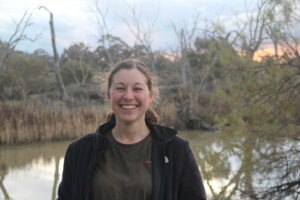
Aviya Naccarella is an ecologist with an interest in ecosystem processes. Her research is cross-disciplinary, and her passion lies in bringing together researchers, land managers and communities to work towards common conservation goals. Aviya’s PhD at Deakin University focuses on understanding ecological interactions between mammals, plants, fungi and soils. Her research explores how we can apply this knowledge to conservation projects aimed at restoring ecosystem function.
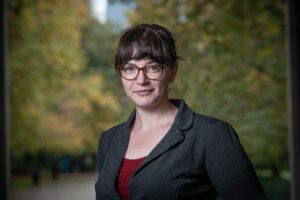
Dr Vicky Waymouth is an enthusiastic ecologist, with a passion for observing and unravelling interactions that occur between fungi and roots at different scales. Vicky is currently a Research Fellow at the University of Melbourne investigating plant-rhizosphere-water relations for food crop growth in water limited conditions a major global challenge. Vicky completed her PhD in 2022 on “The influence of land-use on soil microbial communities in riparian ecosystems”. Vicky has research interests in the response of microbial communities particularly fungi to drought, land-use change, disturbance regimes or elevation and how that relates to plant communities.
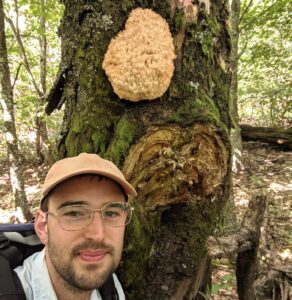
Jeremy Hegge's (he/him) passion for mushrooms began with a fungi foray in Bratislava, Slovakia, lead by sound artist and amateur mycologist Jonáš Gruska. After a brief foraging stint in central Germany, he returned to Australia only to find a lack of detailed resources for mushroom hunting and identification, especially since many local species remain formally undescribed and poorly documented.
Formerly living in Brisbane and now Melbourne, Jeremy has been actively learning about local fungi. He adopts a slow, informed, and researched approach to identification and foraging with a heavy focus on taxonomy and deep diving into global foraging practices.
He has experimented with eating dozens of native fungi, many of which have not been commonly consumed. For the past two years, he has led fungi identification walks in the Naarm/Melbourne area and will continue these walks with Partial Veil this year (https://www.instagram.com/
He is also an avid photographer of fungi (https://www.instagram.com/
Jeremy is a passionate user of iNaturalist (https://www.inaturalist.org/
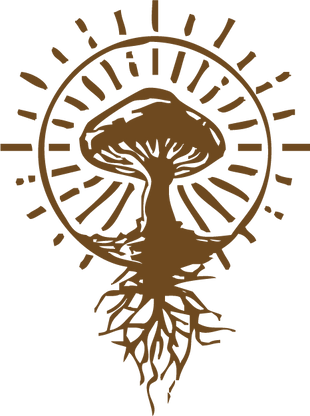
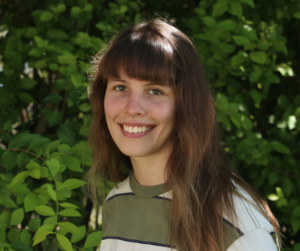
Sequoia is a third-year Environmental Science student at Deakin University, who discovered her passion for mycology while learning to identify mushrooms in the forests of New Zealand. Sequoia has been volunteering with MYCOmmunity since 2021 and is actively engaged in community education of fungi across Victoria by collaborating with mycologists and leading her own identification and foraging workshops in Mt Macedon. In 2023 Sequoia started working with Rhizocore Technologies, a UK based biotechnology company primarily focussed on ectomycorrhizal species, where she is aiding their expansion to Australia and curating the collection, isolation, and preservation of Australian fungal species. Her collaboration with Rhizocore reflects a shared vision of making a positive impact on the environment through the incredible world of fungi.
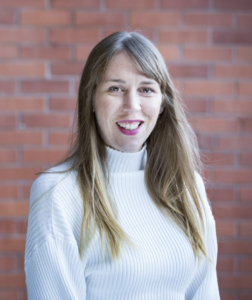
Aimee McKinnon is a research scientist based at Agriculture Victoria, in Melbourne. Her research focuses on the potential of entomopathogenic fungi as biological control agents for insect pests in horticulture, for use as biopesticides in integrated pest management. More specifically, Aimeeis interested in how to improve the efficiency of these fungi to suppress pest populations, and how these organisms interact with the crop host, as well as with other pest control strategies that might be used, and with other microbes that they may encounter in the agroecosystem.
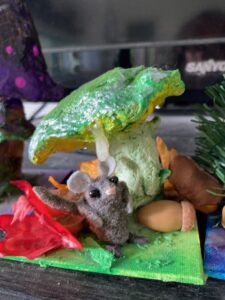
Rosie Grundell mushroom painting workshops
BOOKED SEPARATELY
Watercolour workshop
What a lovely way to spend your winter evening cosy by the fire, painting your favourite fungi white enjoying a cup of tea or glass of wine. Come and learn to paint mushrooms in watercolours. In this 2 hour beginner friendly class you will learn how to paint mushrooms using a variety of techniques. No experience necessary. Painting fungi is a great way to teach yourself new species and is an excellent way to keep a record of species found in the field.
Paint your own mushroom
Paint your own free standing paper clay mushroom using acrylic paints.
Decorate it using a variety of materials that will be supplied for you. E.g. artifical moss, wool, felt, ribbon, gumnuts, acorns and many other fun materials.
Places are limited.
You can book this workshop without booking in for the Mushroom Festival.
More info and tickets available at
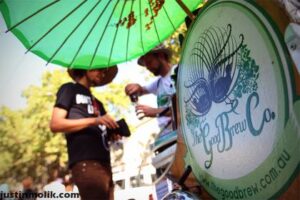
Dean O'Callaghan born in Melbourne's beautiful & mountainous Kinglake
age 10 travelled 2 years around Aus with family
age 13 settled in Melbourne
graduated from RMIT computer systems engineering, computer science double degree
worked for a couple of soulless corporations for a year
travelled through europe for six years
started successful online teaching business in germany
returned to Australia, age 30, to do something for the planet
started sustainability in brewing enterprise the good brew co.
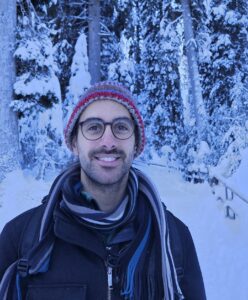
Alex Ringeri is currently undertaking his Master of Science (Bioinformatics) degree at the University of Melbourne. He is conducting research on methods of identifying fungi through analysis of DNA sequence data. With over eight years of industry experience in software development, Alex aims to bridge disciplines and apply his computing skills to aid research in ecology, mycology and other areas of biology. In his spare time, Alex enjoys long bike rides, bush walks and playing music.
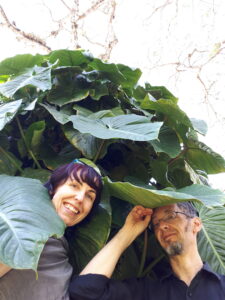
Places limited!
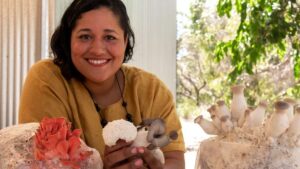
I am Feresh Pizarro, the founder of South Spore. South Spore is a sustainable off-grid mushroom farm near Robe, SA. We love educating people about the amazing and often ignored capacities of fungi! We believe fungi are the missing link for solving many of our biggest problems. Our mission is to sustainably cultivate gourmet and medicinal mushrooms and be a portal for people to learn about this Queendom. For more information, please visit our website at southspore.com.au or follow us on Instagram at _south_spore or on Facebook's South Spore page.
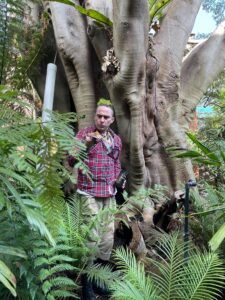
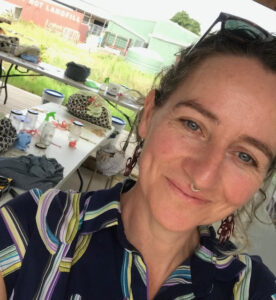
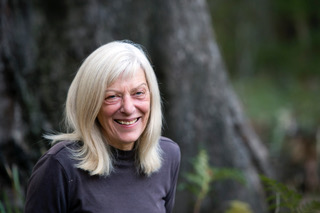
Gayle Osborne lives on a bush block in the Wombat State Forest and is a founding member of Wombat Forestcare Inc., a group established in 2006 for the protection of the environmental values of the Wombat Forest. She is the convenor the group, which was instrumental in lobbying the state government for a Victorian Environmental Assessment Council (VEAC) investigation into a number of state forests in the Wombat and Mt Cole areas, which led to the Victorian government undertaking to create a new Wombat-Lerderderg National Park. Wombat Forestcare is actively campaigning to halt the environmentally destructive VicForests' salvage works in the Wombat Forest and for the government to legislate the National Park .
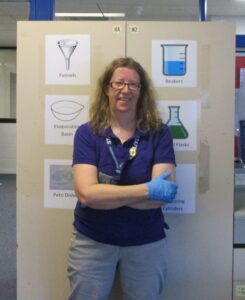
Fran La Fontaine is a highly experienced science laboratory technician with a career spanning 30+ years across areas of research, tertiary and secondary science education. At university (RMIT), she gained a unique biology degree featuring units in plant pathology, applied mycology and medical mycology. A growing love of fungi and subsequent work at RMIT saw her assist in developing the practical component of Melbourne’s first Applied Mycology short course. Fran is skilled in microscopy techniques and fungal culture, with particular personal interest in microfungi (such as soil fungi, and those that cause plant disease). She is excited to share with you the fascinating ‘inner-inner’ workings of mushrooms through the microscope lens at her Festival workshops.
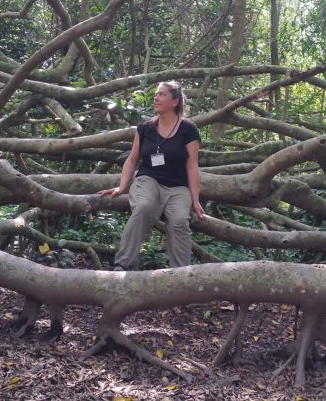
Event coordinator
Ema Corro (she/her) is the main organiser of the Moorabool Mushroom Festival. She is also president and co-founder of MYCOmmunity.
Ema is a mycologist with experience in mushroom cultivation, myco-materials, environmental science and ecology. She also has extensive experience with community engagement and science communication. She regularly teaches courses and workshops on various aspects of mycology including science, cultivation and identification. She is coordinator of the Wild Fungi Project which aims to increase knowledge of Australian fungi by engaging citizen scientists in collecting and sequencing mushrooms, as well as developing environmental DNA techniques to monitor pest and endangered fungi.
Other speakers and workshops
(details yet to come)
Sherie Bruce
Alex Ringeri
Aimee McKinnon
Many more workshops and speakers TBC
